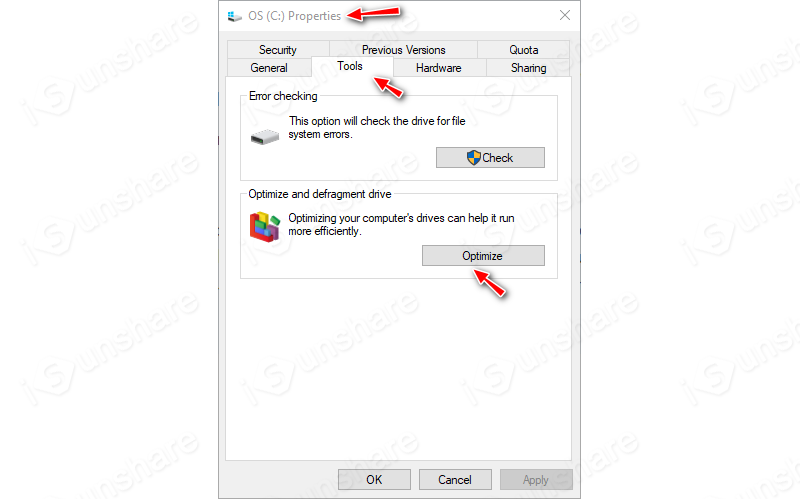Yes, you can defragment a BitLocker encrypted drive after you unlock it.
Fragments may appear on the disk when we add or delete files. When fragments accumulate to a certain extent, the disk's access speed decreases significantly. This can make us feel that the computer is not as fast as it used to be. In this case, we can perform defragmentation to rearrange the files stored on the disk, making their storage locations physically contiguous. This way, we can increase the disk's access speed and restore its initial performance. Now, let's explore the detailed steps for defragmentation.
Defragment a BitLocker Encrypted Drive
Step 1: Unlock the BitLocker encrypted drive. Double click the BitLocker encrypted drive in the File Explorer and type password or recovery key to unlock it.
Step 2: Open the "Defragment and Optimize Drives" utility by searching for "defrag" in the search box.
Alternatively, you can open it following these steps: right-click the hard drive in File Explorer > select the "Properties" option from the context menu > switch to the "Tools" tab in the pop up window > click the "Optimize" button on this page.

Step 3: In the optimization tool, select the drive you want to optimize and click "Optimize" to start.
Summary
In summary, you can defragment a BitLocker encrypted drive after unlocking it. However, defragmentation is not helpful for improving the speed of SSD(Solid State Disk) and USB flash drives, which use flash memory to store data. In fact, frequent defragmentation may even decrease the lifespan of these devices because it involves writing and erasing data frequently, which can contribute to the wear and tear of flash memory cells.



